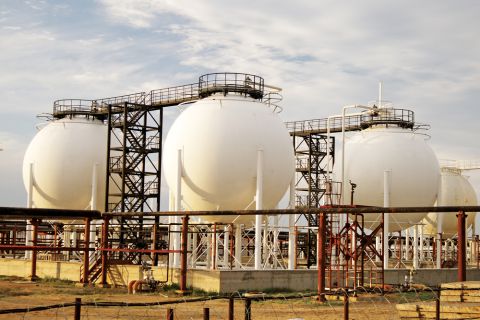Venezuela is importing 2.5 million to 3 million barrels of heavy naphtha per month from Caribbean facilities and trading firms to use as diluent for extra heavy oil output, according to an internal report from state oil company PDVSA seen by Reuters.
A tender was awarded to trading firm Vitol in the second quarter of the year, with deliveries scheduled through December, allowing PDVSA to have a stable source of naphtha to make diluted crude oil (DCO) for export.
PDVSA received five 500,000-550,000 barrel cargoes of heavy naphtha at its Jose terminal in July. Most of them were supplied by Vitol from the U.S. Gulf Coast, though some came from Curacao and Aruba, where PDVSA operates storage terminals, according to the internal exports and imports report.
The Venezuelan company plans to receive five 500,000-1 million barrel cargoes of the same product in August, the report added.
However, PDVSA this month also received offers from foreign producers to supply some 70,000 barrels per day of ultra light crudes in 1-5 year contracts, according to sources at four of the companies involved. The oil is expected to replace naphtha as diluent.
PDVSA has not yet selected a proposal, they noted recently. The Caracas-based company did not respond to requests for comment.
A potential crude import through a long-term contract would mark the most definitive step PDVSA has taken to obtain supplies of diluents while its own production of medium and light crudes declines.
OPEC-member Venezuela is struggling to afford imports in the midst of lower prices for oil, its chief export, rampant inflation and shortages of goods that are forcing people to wait in long lines for everything from flour to meat.
Venezuelan imports of crude and products have increased since last year, PDVSA's tenders and monthly reports show.
They have been used for blending operations as Venezuela's production of extra heavy crude from the Orinoco Belt grows, as well as to offset certain insufficient refined products such as alkylate, traders say.
The purchases keep growing while PDVSA's exports of finished fuels decline, the data shows, as its network of refineries suffers stoppages and unplanned maintenances.
Recommended Reading
For Sale, Again: Oily Northern Midland’s HighPeak Energy
2024-03-08 - The E&P is looking to hitch a ride on heated, renewed Permian Basin M&A.
E&P Highlights: Feb. 26, 2024
2024-02-26 - Here’s a roundup of the latest E&P headlines, including interest in some projects changing hands and new contract awards.
Gibson, SOGDC to Develop Oil, Gas Facilities at Industrial Park in Malaysia
2024-02-14 - Sabah Oil & Gas Development Corp. says its collaboration with Gibson Shipbrokers will unlock energy availability for domestic and international markets.
E&P Highlights: Feb. 16, 2024
2024-02-19 - From the mobile offshore production unit arriving at the Nong Yao Field offshore Thailand to approval for the Castorone vessel to resume operations, below is a compilation of the latest headlines in the E&P space.
TotalEnergies Acquires Eagle Ford Interest, Ups Texas NatGas Production
2024-04-08 - TotalEnergies’ 20% interest in the Eagle Ford’s Dorado Field will increase its natural gas production in Texas by 50 MMcf/d in 2024.





